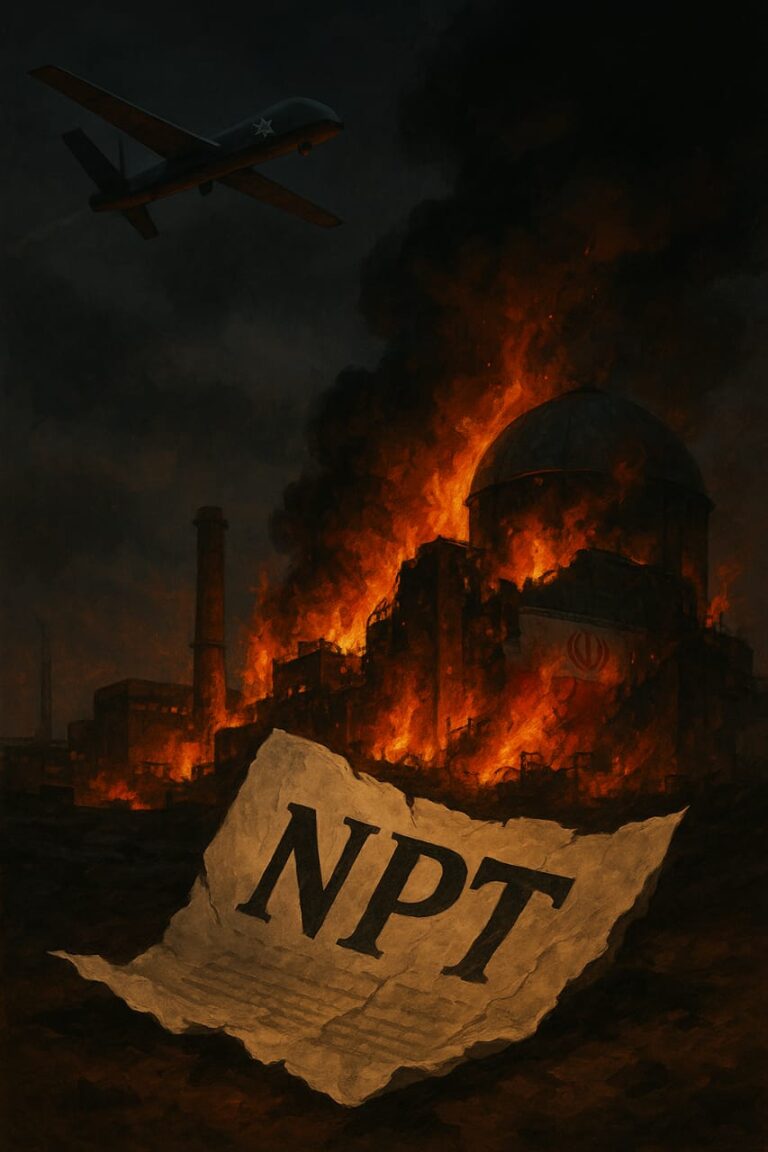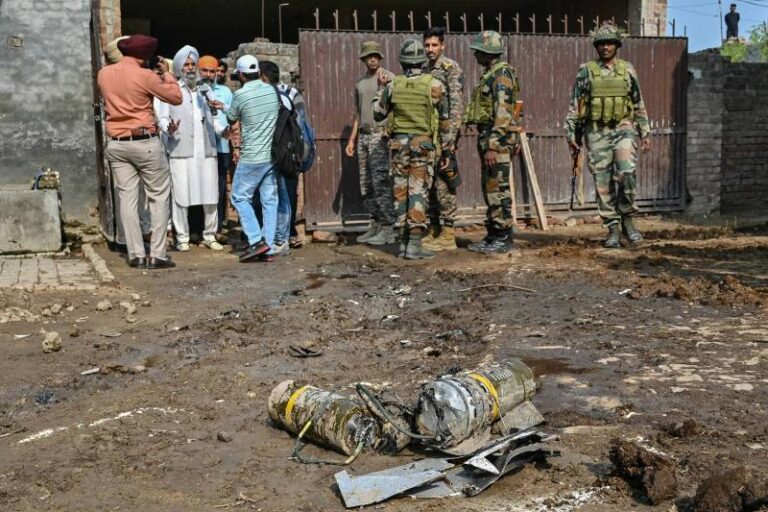
Source: AFP
Zamir Akram
The latest Pakistan-India crisis, triggered by the attack on an Indian para-military convoy killing over 40 soldiers on February 14, 2019 in the Pulwama area of Indian Occupied Kashmir, seems to have subsided after 2 weeks of tense military confrontation. But relations between Pakistan and India remain extremely volatile especially due to the hysterical war mongering during and after the crisis in the pliable Indian media, encouraged by Prime Minister Modi’s belligerent statements designed to use the episode to further his political fortunes in the forthcoming Indian elections. In such a situation, even a minor spark could ignite another crisis that could spiral out of control with devastating consequences in the region and beyond. Therefore, it is imperative for both countries that are Nuclear Weapon States to draw the correct lessons from the Pulwama-Balakot crisis in order to prevent an outbreak of conflict between them in future. In order to do this, it would be crucial to separate fact from fiction and draw lessons from what actually happened.
The Pulwama attack was carried out by a lone Kashmiri youth to avenge the abuse to which he was subjected to by the Indian security forces. This was a direct result of the brutal repression unleashed on the Kashmiri people who have revolted against the Indian occupation. This repression has intensified under the Modi government, leading to total alienation of the Kashmiris. Even pro-Indian Kashmiri leaders like Farooq Abdullah and Mehmooda Mufti recognize this fact as do several former Indian officials like Northern Army Commander General Rooda, Admiral Ramdas, RAW Chief Dulat and noted author Arundhati Roy among others. The UN High Commissioner for Human Rights, the European Union and the British Parliament as well as leading human rights organizations like Amnesty International and Human Rights Watch have all acknowledged gross Indian violations of human rights in Kashmir. Accordingly, it is now an inescapable and incontrovertible fact that the root cause of the tension between Pakistan and India is the situation in Kashmir and that these tensions will continue until the Kashmir dispute is resolved in keeping with the wishes of the Kashmiri people. Even leading American media sources such as the New York Times stated in its editorial of 10 March that “as India and Pakistan refuse to deal with their core dispute – the future of Kashmir – they face unpredictable, possibly terrifying consequences”. The obvious conclusion, therefore, is that until and unless the Kashmir dispute is resolved, incidents like Pulwama will continue to recur. This is the first and most important lesson.
Secondly, and as a result of the first lesson, it is delusional for Indian leaders and their American, British, French and other friends to blame Pakistan for cross-border terrorism alleging patronage of non-state actors such as Jaish-e-Mohammad (JeM) and for instigating the crisis. Even if JeM was responsible for the attack, which in itself is dubious since no proof or evidence has been provided to substantiate this knee-jerk Indian accusation, the root cause of the crisis undeniably remains the Kashmir dispute. Efforts by Pakistan and the international community to proscribe and ban the so-called terrorists organization like Jaish would have no material impact as long as ground realities in the Indian occupied Kashmir do not change for the better. The Kashmiris will continue their struggle against Indian oppression and this might not be the last crisis that we have seen. Moreover, it is important to recognize that from the perspective of International Law including the UN Charter, the Kashmiri struggle for self-determination is a just and legitimate struggle against foreign occupation which cannot be equated with terrorism.
Thirdly, even if the Indians remain in denial about it, Pulwama has effectively internationalized the Kashmir dispute and brought it back to the top of the international agenda. Any effort by Pakistan and India to de-escalate tensions and the involvement of any third party to encourage them to do so, must now take into account the need to resolve this dispute. For Pakistan, this is an opportunity that it must use to the fullest in its diplomatic efforts in keeping with its policy on Kashmir, both bilaterally with India and internationally.
A fourth lesson of the Pulwama crisis is that Indian belligerence and resort to military action that could have escalated to a full scale war, was encouraged by the allies of India, particularly the US. Apart from the overall umbrella of the Indo-US strategic partnership that has qualitatively and quantitatively enhanced Indian military capabilities, Trump’s National Security Advisor, John Bolton, stated that India had the “right to self-defence” while a White House official maintained that “we (US) do empathize with the Indians’ perception that they need to respond militarily”. The Indian strike in Pakistani territory was described by the US Secretary of State, Mike Pompeo as a “counter-terrorism” operation while urging Pakistan “to avoid military action” in response to the Indian provocation. It was only after Pakistan took retaliatory measures by attacking Indian targets and shooting down intruding Indian jets that Washington changed its tune to encourage restraint and de-escalation by both sides. Nevertheless, the conclusion is clear that initial support for India by its friends, emboldened Modi to pursue the military option, with obvious and dangerous consequences. The lesson for all concerned parties therefore is: support for even low-level military aggression between these nuclear weapon states can escalate to dangerous confrontation which may spiral out of control and not remain limited in future iterations.
Fifth lesson from this crisis suggests that there is a wide gap between ambitions and capabilities. In its self-perception of being a regional if not a global power, India tried to emulate its American and Israeli allies by launching airstrikes against the so called terrorist targets. But unlike American and Israeli targets, which lack the capability to retaliate, Pakistan does have the capacity and the willingness to retaliate which was adequately demonstrated. It would serve India right to avoid such a miscalculation in the future for it risks a wider and more dangerous retaliation if the path is not corrected.
Sixth, the Indians failed in their diplomatic efforts to ‘isolate’ Pakistan by playing the terrorism card. This became clear by the third successive failure of its US, British and French allies to put Jaish’s leader, Masood Azhar on the UNSC’s terrorist list under resolution 1267 which China once again placed a ‘technical hold’ on. More broadly, the international reaction to Pulwama was not to isolate Pakistan and hold it exclusively responsible but to endorse restraint by both sides and call for de-escalation during the crisis. However, Pakistan must also recognize that its narrative on terrorism, especially about its own sacrifices in fighting terrorism and the Indian support for terrorist groups targeting Pakistan, such as the TTP, Baloch separatists and elements of the MQM, has not yet found traction in important western capitals. Even if this is due to their vested interests in India, there is need for Pakistan to redouble its efforts to make its narrative acceptable in key countries.
Lastly, the effectiveness of Pakistan’s Full Spectrum Deterrence came forth openly. Despite Modi government’s desperation to demonstrate a robust response, it was forced to de-escalate once Pakistan retaliated to the Indian attack on its territory. False claims were made on media of having bombed an alleged terrorist camp near Balakot killing over 300 people. In fact, India in a night raid, had bombed an open space on a mountain side with no casualties except for some uprooted trees. In order to establish the credibility of its deterrence and demonstrate its resolve, Pakistan carried out strikes in broad daylight and made deliberate effort to not destroy Indian military targets to prevent further escalation. In the ensuing operations, two Indian jets were shot down. The captured Indian pilot of one of the planes that was hit by Pakistan, was returned to India in an effort by Pakistan to de-escalate. Indian intention of resorting to missile attacks on six Pakistani targets was retracted once Pakistan communicated an even stronger response with eighteen Indian targets to be hit in retaliation. Throughout this crisis, there was no noise made about the much touted Indian Cold Start doctrine. The credibility of Pakistan’s Full Spectrum Deterrence provided the incentive for escalation management and control by both sides and also encouraged international efforts for restraint and de-escalation.
Ambassador Zamir Akram is a former Ambassador who has served as Pakistan’s Ambassador and Permanent Representative to the United Nations and other International Organizations.




